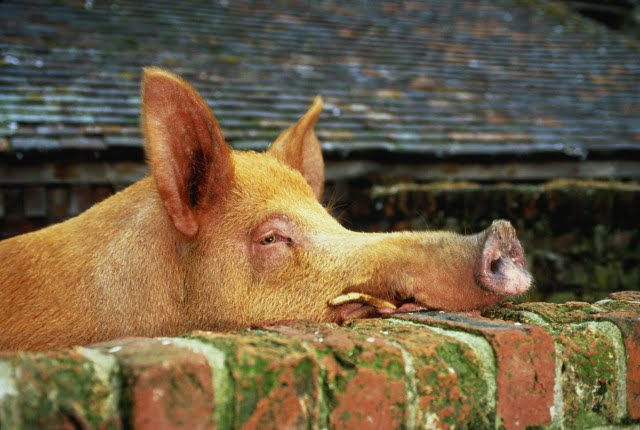Since 2018, the country has been suffering from outbreaks of the disease; almost 1 million animals have been slaughtered.
China is currently one of the largest global producers of pork, representing 50% of the pork produced in the world. Every year, 700 million pigs are slaughtered for trade.
It is not surprising, therefore, that the country is also one of the worst affected by African Swine Fever (ASF), a highly contagious and lethal disease caused by a virus of the Asfarviridae family, genus Asfivirus, which affects domesticated and wild pigs (wild boars and crossbreeding with domestic pigs).
Highly contagious and lethal, ASF is transmitted mainly by direct contact with susceptible pigs, infected pigs (domesticated or wild) or by the ingestion of products contaminated with the virus. Carcasses of infected Suidae that die and remain on the environment become the focus of infection and spread of the virus in different ways; it may be transmitted through equipment, clothes, vehicles, and vectors such as the Ornithodoros tick.
The disease is mainly characterized by its hemorrhagic form. In the acute form, there is high fever (between 40 and 42 degrees), loss of appetite, bleeding in the skin (on the snout, ears, paws, and abdomen) and internal organs and breathing problems. The mortality rate is high, leading to death from 4 to 10 days.
The first ASF outbreak in China took place on August 2018. Since then, the disease has been spreading throughout the country and reaching new herds.

As there is no vaccine or cure, China adopts measures to try to contain ASF. In September 2018, for example, Chinese authorities banned the use of pig food and pig blood as raw material for the production of pig feed. Another measure was the banning of live pigs transport in provinces contaminated by ASF and neighboring provinces. The country also notified the pig farming industry that concealing ASF cases is a crime.
According to data disclosed by the Chinese Ministry of Agriculture, the country registered the second ASF outbreak in January 2019, which affected 24 provinces and regions in China. Over 900 thousand pigs were slaughtered during this second outbreak.
According to the Vice Director of the China Animal Health And Epidemiology Center, Wang Zongli, in an interview with Reuters, the slaughtered animals were from contaminated farms and farms within three kilometers of these places.
This situation affects the pork market and, consequently, generates huge commercial losses in the country. For example, there is a large price difference between Chinese regions that have low pork supplies and those with an excessive one.
Another consequence of this situation is the reduction in demand for pork, as the market, concerned with food security, reducing the consumption of this type of meat.
However, according to data of the Chinese Ministry of Agriculture, in the first ten months of 2018, Brazilian pork exports to China increased by 247%, totaling 132,900 tons.
Although not transmissible to humans, the ASF virus is very dangerous to animals; it is quite resistant, being able to live for up to three months in animal feces and up to nine months in food (aged products).
So far, the only solution found by producers around the world to minimize the spread of this disease, of which the virus is difficult to control, is to incinerate ASF-contaminated herds.
Posted in 22 May of 2019


